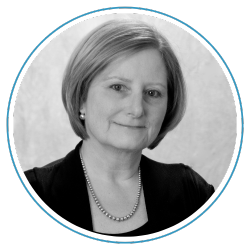
COURSE
This program WILL NOT BE recorded.
Registration closes at 12:00pm EST the day before the program begins.
Zoom Links will be in your confirmation email.
The dream is a theater in which the dreamer is himself the scene, the player, the promoter, the producer, the author, the public, and the critic.
- C.G. Jung, CW8, par. 509
C. G. Jung considered the psyche and dreams as expressions of unconscious processes. According to Jung, difficulties arise in the interpretation of dreams and images because of their unconscious nature. He determined that dreams are often structured like dramas and that the theater motif and the dramatic presentation of the unconscious story can assist in understanding a dream.
The dramatic structure of the dream, like that of a Greek drama, consisting of a setting, theme, characters, development, crisis, and outcome, all contribute to grasping the unconscious language being spoken by the psyche.
The unconscious language of dreams speaks through image and symbol. So, in addition to learning to interpret the dramatic structure of a dream, one will learn the language of images and symbols. In dream interpretation, Jung also gave prominence to symbol amplification and personal association to dream images, and he stressed the objective nature of the psyche. All these elements of dream analysis will be woven together and will expose the participants to dream interpretation through a Jungian lens. The class will be didactic and experiential. Please bring a short dream that can be shared in the group.
Objectives:
- To begin to interpret a dream through a Jungian analytic lens
- To learn to identify the dramatic structure of a dream
- To understand the significance of the unconscious language of images and symbols in dreams
- To learn different approaches to dream interpretation, such as:
- Active imagination
- Jung’s map of the psyche
- Amplification
- Associations
- Appearance of music, fairy tales or stories in dreams
- Creative methodologies
Jane Selinske, EdD, LCSW, NCPsy A, MT-BC, is a licensed Jungiananalyst, a practitioner of Mandala Assessment and a Board CertifiedMusic Therapist. She was trained at the New York C. G. Jung Instituteand has taught analytical psychology and Jungian theory at theInstitute of Expressive Analysis, the Creative Therapies Instituteconnected with New York University, the New York C. G. Jung Institute,Rutgers University, and the New York C. G. Foundation where she iscurrently President of the Board of Trustees. Dr. Selinske has apractice where she unites music and imagery, art, spirituality, andJungian theory.

 ZOOM LINKS: Zoom links can be found in your registration confirmation email. They will also be shared about 24 hours before the program start time. Registration closes before Zoom links are shared. If you do not receive your link 24 hours in advance, please reach out asap directly to support@jung.org
ZOOM LINKS: Zoom links can be found in your registration confirmation email. They will also be shared about 24 hours before the program start time. Registration closes before Zoom links are shared. If you do not receive your link 24 hours in advance, please reach out asap directly to support@jung.org
CANCELLATION: You may cancel your registration up to 1 week prior to the program.
By agreeing to enroll in an online program offered by the Jung Society of Washington, you are also agreeing to comply with our terms. This means that you cannot record (through internal or external devices) the audio, visuals (photos), or any videos of the program. The intellectual property belongs to the presenter, and we ask you not to violate this policy. Also, we highly value the anonymity of the content of the program, of the presenters, and of individuals present in the program, and hope that everyone can contribute to a respectful and trust-building online environment. Thank you!
